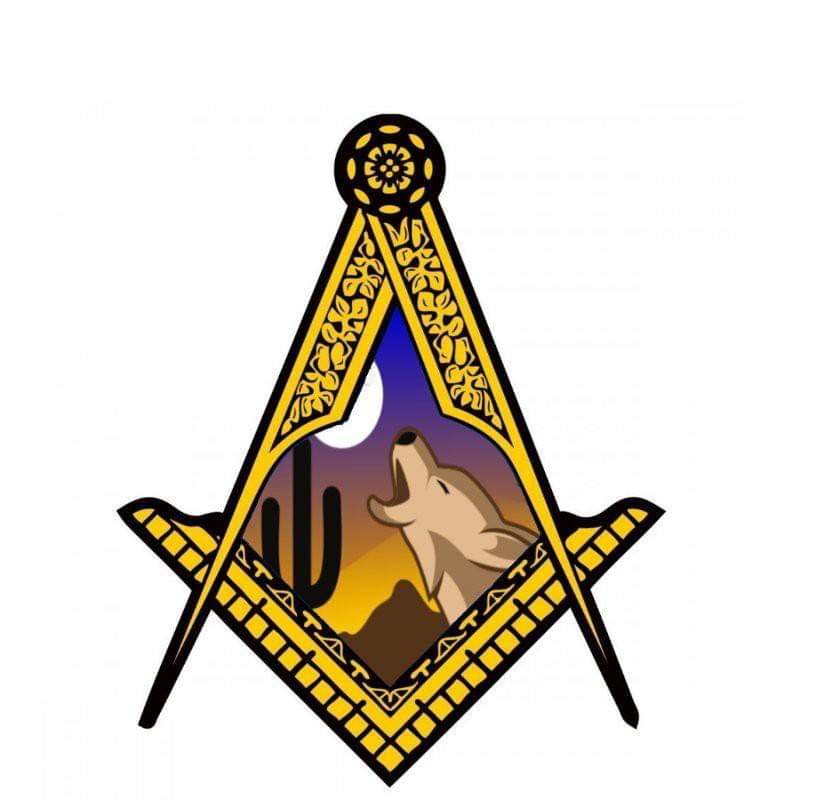Growing the Masonic Way
- Gila Valley 9 Masonic Lodge

- Jul 9, 2021
- 4 min read

Masonry has a goal: the perfection of Humanity. Its Path is of Action; its Way is of Duty.
As we look back in life, recollections of experiences lived during childhood, adolescence, and adulthood flash before our eyes. Yet, how the second to second process of growth and maturity took place and how the expansion of understanding occurred, escapes our perception. It all seems a series of stages lived; the fruits of each being appreciated in the light of the succeeding one. While we lived, we did not understand the relevance of the particular in the future; the growth process going on. Yet, as we look back, the link is evident. Most of the way has been painful in our multifarious activities, for there has been a lack of understanding of the congruity of the steps that should be taken: one by one.
Masonry provides, for the seeker of Light, a unique training that, if taken seriously, compels him to tread the Path - starting from where he stands right now to unison with the Divine Plan. We need to understand the significance of life and of ourselves, and learn to recognize and overcome the obstacles that impede our vision. For man is meant to be happy and to have the inner peace that is the fruit of duty done. To awaken this awareness of oneness, within ourselves and with the whole, is the goal of Masonry. Thus, the importance of growth achieved through duty well done.
Going through the stages of E.A., F.C., M.M., and as officers of a Lodge, the opportunity is given to each brother to systematically develop aspects of himself. Each stage in Masonry has obligations well defined; that when acknowledged and fulfilled yield the fruits of growth. That is the “why” of the carefully delineated degrees and prescribed responsibilities of office. For the perfect linkage makes possible, when each stage or office is seriously taken and lived, a gradual expansion of consciousness and of interaction, thus training the whole of man for a fuller life.
Our ritual is a reflection of the perfect order underlying the Divine Plan. In our Masonic work, it is we as individuals that fall short of what should be done. The first duty of a Mason is to understand what that really means and what part is his individual responsibility within the totality of the work. We take freely obligation after obligation, which are taken too lightly, and these are supposed to be taken fully conscious.
I, as a Master, have a responsibility that is two-fold. There is an inner and outer aspect that cannot be over looked. The obligation to plan the work before the meeting, to see it carried out, to instruct the brethren in the Craft, and to follow upon Lodge business all during the month is part of my present job. In the inner plane, it is my duty to try to realize, as much as possible, the inner significance of the office, and the qualities that I am called to unfold because of the position. I must question myself: what does it mean to be a Master? Am I fulfilling my job? Each of us that have an office must contend with that dual side. Each must ask himself, if he is doing his part.
Each position holds a secret for him who is capable of unveiling it; each yields the fruit that contains the seed for the succeeding on. Every stage in Masonry is an opportunity and a privilege granted to us. How well we do realize this?
There will be days we are summoned, and we feel lazy and sluggish. If we give ourselves a chance, excuses will abound. Inertia sets in; thus, negligence of that which is our duty creeps unnoticed, and that which is part of our work is not done by us. Let us remember, that to assume the responsibility of an office before and after the meeting is over, is what is important; for most of us, with a little practice, can perform the ceremonial part. It is then, when the going gets hard, that Masonic training is most effective. We are put to a test, and if we are serious, it impels us to flex our muscles and to do our part. One of the functions of ceremonial work is to train man in the performance of his duties regardless of what his inclinations are at that particular time. His feelings are secondary to the duties that befall him. By action, he strengthens his will power and learns to overcome. The unfoldment of his will, and the strength to sustain the course chosen, are key to surmount the obstacles he will encounter in his walk through life.
Masonry has a goal: the perfection of Humanity. Its Path is of Action; its Way is of Duty. Brothers, we may do little or much, accordingly; if ever subjected to the Law, we will progress in our Masonic Arts. This will evince itself in the personal working tools that each carries with himself, with which, he carves his life.





Comments